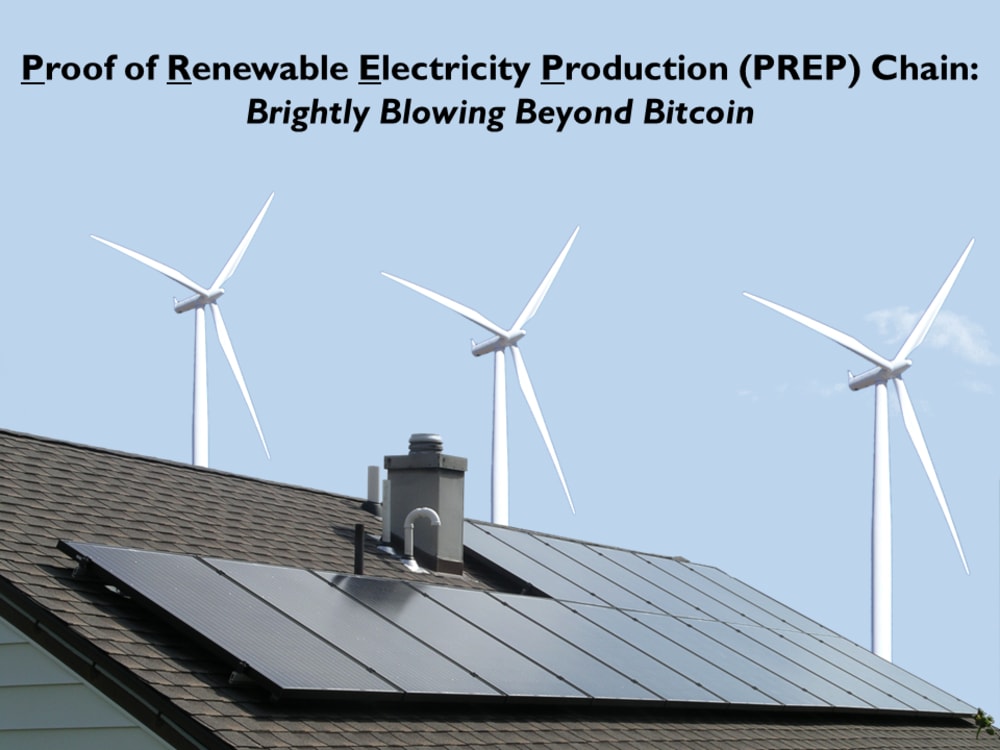PREPchain *reverses* the large-scale climate impacts of blockchain technology, while making blockchain more secure & decentralized! In this network, block sealing capacity is proportional not to energy burned or economic resources posted, but electricity produced from renewable sources.
In a blockchain network using Proof of Work (PoW) like Bitcoin, one’s ability to participate in securing the network is proportional to the amount of energy they burn. Someone trying to break the immutability/security guarantees would have to burn more energy than the rest of the network combined, which would be costly & noticeable. This makes for great security but major negative planetary impacts, with Bitcoin using more electricity than several midsize developed countries, and almost getting blockchain technology banned in some jurisdictions. Even where Bitcoin is mined using a renewable energy source, that is generally renewable electricity not being used for some other purpose for which dirtier energy sources are being used instead.
In Proof of Stake (PoS), each participant’s ability to participate in securing the network is proportional to their committed economic resources. This is close to neutral in terms of impact on planetary sustainability, but presents some additional security vulnerabilities especially to very well-resourced actors.
Proof of Renewable Electricity Production (PREP) takes another step at least as large in the same sustainability direction, setting participants’ abilities to participate in securing the network proportional to the amount of electricity each one produces from renewable sources like wind and solar, which can then be used for any purpose. This project uses the huge amount of economic power which will soon be pouring into blockchain technology to incentivize production of electricity from renewable sources (+ associated elements like storage), on top of all the other incentives for doing that.
This project could also enhance the security and decentralization of blockchain technology, because ownership of renewable electricity production assets is more decentralized than e.g. ownership of money or Bitcoin mines, and building renewable electricity production facilities that could overwhelm the rest of the world would be more costly, noticeable, and slow than trying to do something similar in a Proof of Stake system. If Proof of Stake’s vulnerabilities to well-resourced actors suddenly become a salient issue for many ecosystem stakeholders, planetary sustainability requires that we have ready a better system to turn to than a return to Proof of Work. Ideally, we’d be able to make an orderly transition to this new system before any such panic arises.
Strategies for ensuring production quantification numbers could be secured include but are not limited to those already used for verifying renewable energy credits, carbon offsets, and production tax incentives, as well as cryptographic signatures from inverter hardware/production sensors, onboarding inspections by stakeholders, production caps, and a fraud-challenge mechanism. The technical and consortium-building work appears nontrivial but feasible.
This project helps address the climate crisis on a national-equivalent scale, while also making a blockchain that can be more decentralized and resistant to takeover than the most widely used status quo chains. Let's make it happen!
Like this entry?
-
About the Entrant
- Name:Ben Towne
- Type of entry:individual
- Patent status:none

